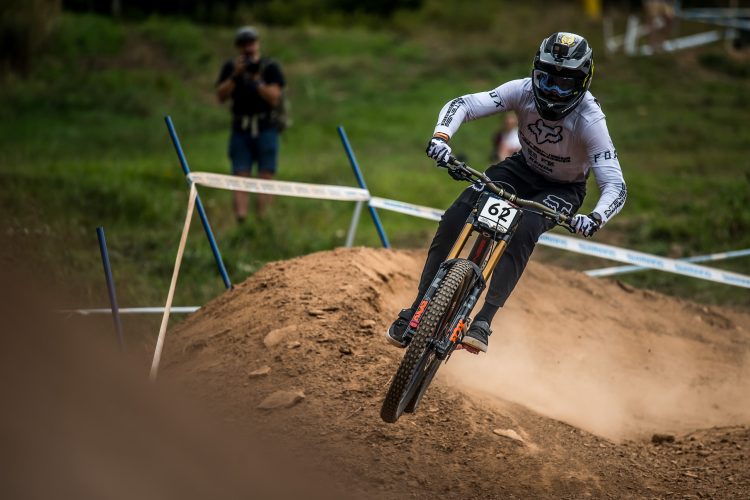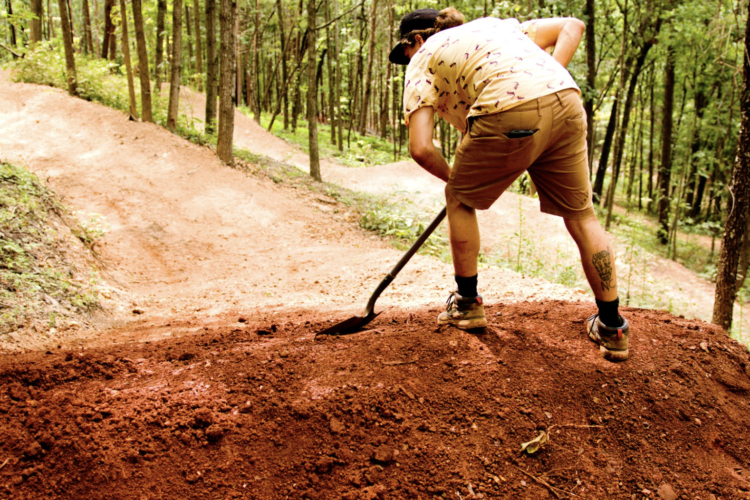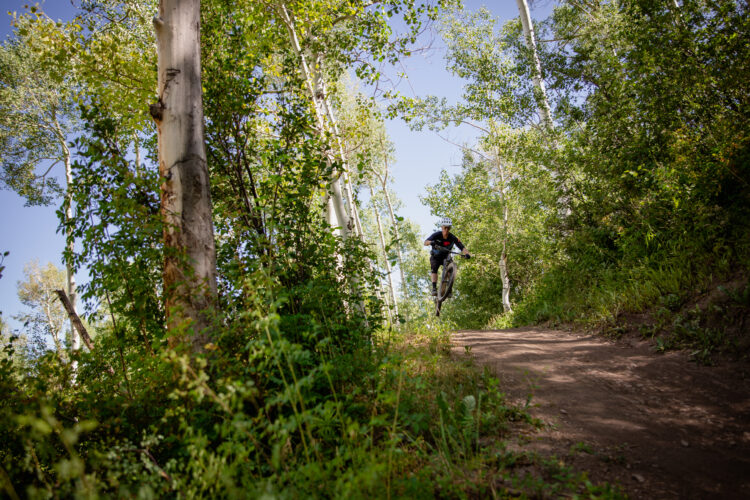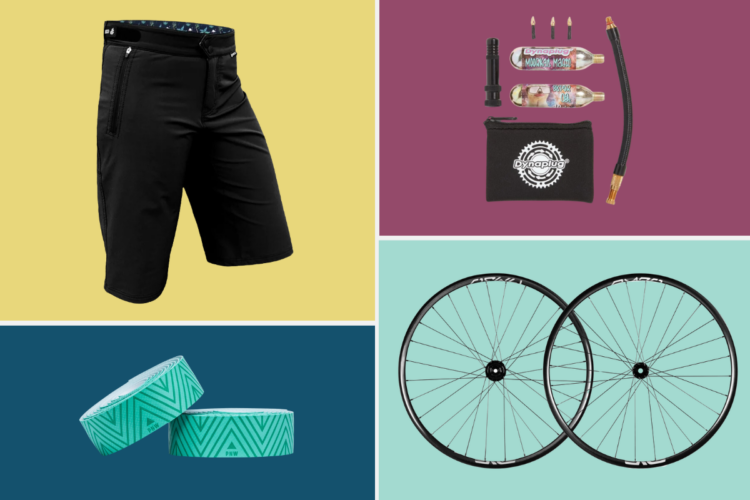
It’s February 10 and we roll up to the bike park wearing nothing but shorts and t-shirts. Leah and I are here with our 10-year-old son Reed to check out the mountain bike trails at Ride Kanuga, a bike park co-founded by pro downhill racer Neko Mulally and Dr. David LaMond. From the moment we arrive, it’s clear the stoke is high. The bike shop has just opened for the day and the large gravel parking lot is buzzing with activity as riders suit up outside their vehicles with license plates from Tennessee, North Carolina, and Georgia.
“Last year we had about 20,000 unique visitors from 40 or 42 states, I believe,” LaMond tells me. “We’ve been operational since 2020. It was an off season pandemic year.”
Ride Kanuga is located on the west side of Hendersonville, North Carolina and sits on about 200 acres of land leased from the Kanuga camp and conference center. The park offers eight downhill mountain bike trails with about 500 feet of vert separating the trailhead and the top of the mountain. There are two climbing trails and two beginner, two intermediate, and four expert descending trails. The longest descent, the green-rated Evergreen trail, is about a mile and a half long.


There’s no lift or shuttle service at Ride Kanuga, however unlike the trails in nearby Pisgah National Forest, e-bikes are permitted on the trails, and visitors can rent an eMTB to ride at the park. During our visit we saw about an equal split between electric and non-electric riders.
“The climb is doable, acoustic or e-bike,” said Lamond. “It’s 500 feet [to the top] and it’s a pretty mellow climber.”
Since climbing is required, most visitors choose to ride either a trail or enduro bike at Ride Kanuga.

We begin our ride by climbing up the High Rocks Climb trail. Our 10-year-old, Reed, was on a Specialized Turbo Levo borrowed from the shop, and he quickly left us behind while we enjoyed the gradual ascent. LaMond says most riders choose the more direct Copperhead Road climb, which offers a steeper but shorter route to the top.

Evergreen is a wide, flowy descent to the bottom with berms, small tabletops and rollers that had all three of us smiling from ear to ear at the end. Rhodo Ruckus is the first blue/intermediate trail in the park’s progression, and here the berms are steeper, the trail swoopier. The black-diamond Paint it Black trail is raw, steep, and technical with big rocks and roots breaking up the descent at regular intervals.
The park is open seven days a week from sunrise to sunset, rarely closing due to weather.
“When you do a really good job [building the trails], and you maintain them, riding in all conditions, the way the dirt is here, actually works to your favor,” says LaMond.
Since the park sits on privately held land, Kanuga is able to build steeper and more progressive trails than those found in the nearby National Forest. In addition to the downhill trails there’s also a set of jump lines and a skills area located just off the trailhead parking lot.



A Western North Carolina trail center
Modeled loosely off the trail centers found in Europe, Ride Kanuga has a staffed shop at the trailhead offering ticket sales, snacks and drinks, equipment, rentals and bike repairs. Trailside Brewing Co. also has a seasonal outpost with picnic tables at the trailhead.
A day pass costs $29, and there are monthly and annual pass options too. Ticket sales help fund trail building, maintenance and staff for the park. The team decided they wanted to “staff it really, really well,” according to Lamond. “Make sure the quality of the trails is really, really good so it’s worth it.”

LaMond has lived adjacent to the Kanuga property for 20 years, and he and his family used to ride some of the unofficial trails on site. So when the summer camp director mentioned a desire to add a mountain bike program, LaMond pitched the idea of building a proper mountain bike park at Kanuga. He and Mulally are partners in the bike park operations, and in addition to hosting campers and the general public, the park holds a summer race series and also bigger events like the recent No Nuts, No Glory enduro race.

The 100-year-old Kanuga retreat center offers overnight lodging on property with an Inn and cabins available to rent. We chose to stay at the Inn since it’s less than a mile from the bike park. The reasonably priced rooms are modern and clean, though small and fairly bare bones; there are no TVs in the rooms, just in common sitting areas on each hall. Sadly there’s no indoor bike storage on the property but a full breakfast buffet is included with your stay, perfect for fueling up before a big day on the trails.
Fall is perhaps the best time to visit the park after summer temperatures have cooled a bit, however summer is very popular too. Winter is always a gamble in Western North Carolina, though we lucked out with dry trails and temperatures in the low 60s during our February visit.


Heading into their fourth season, Ride Kanuga has gained a positive reputation among mountain bikers and families thanks to progressive and accessible trails that complement the excellent riding that has always been available in nearby Pisgah National Forest. Ultimately, LaMond’s goal is for Ride Kanuga to be a stable, long-term steward of the land and the trails here.
“I don’t want them to become unsustainable. That is Kanuga. We want to preserve the [land] intentionally.”



















